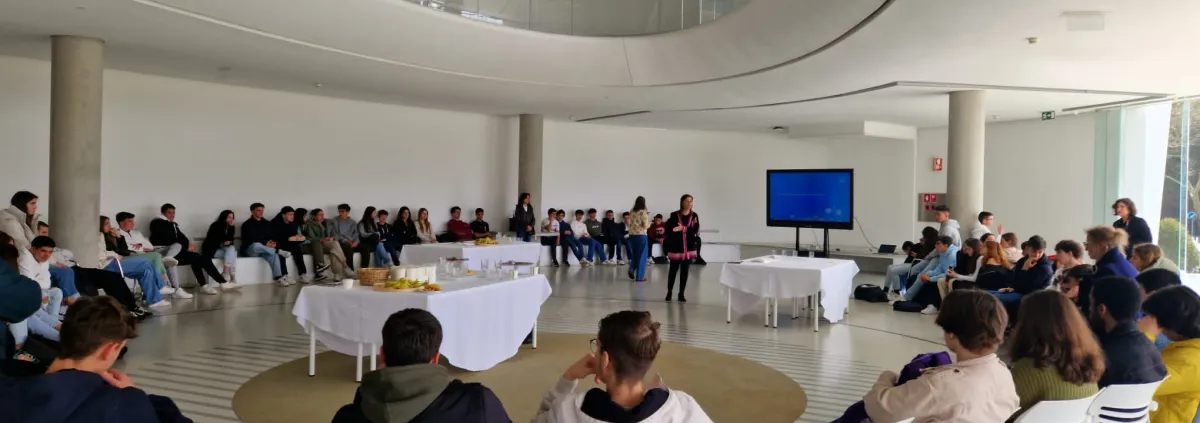The CZarco project, developed in the City of Matosinhos (Portugal), aimed to promote the adoption of sustainable behaviors by the school community. 80 students (and teachers) have used the AYR app (awarded with the NEB - New European Bauhaus Prize in 2021) during 6 months to quantify in real time CO2 emissions avoided when using sustainable mobility modes (bus, metro, biking, etc.) in their commuting trips. This information made the contribution of the school community to the decarbonization of the city visible and tangible. Then, the value of avoided carbon emissions was converted into 'tokens' stored in the students' digital wallets.
This process started with training sessions, within which students quantified their mobility carbon footprint, established CO2 reductions targets and estimated the project's carbon price. During the experience, several sessions were organized to monitor de process and get feedback from the students. At the end, the students proposed the City Council to monetize their tokens in order to finance green projects in the school environment. Students preferred to 'offer' their tokens to the city council to be rewarded as a result of their collective action instead of their individual action.
Moreover, students inspired other classes to change their mobility behavior and quantify their contribution to the decarbonisation of the city, by using the AYR app. After a week, the pilot group increased from 80 to 350 students. Moreover, students acted as changemakers, also inspiring their parents, friends and the community to reduce CO2 emissions.
The project is a partnership among CEiiA (research organization), the Municipality of Matosinhos (Portugal) and a local school (Gonçalves Zarco). Is is also part of the work that is being developed by Lurdes Ferreira in her PhD thesis - University of Lisbon.
The initiative will be replicated in the City of Guimarães and Porto, two Mission Cities of the European network "100 carbon neutral cities by 2030" in 2023/24.


Nice project, Catarina
Children of today's generation attach increasing importance to environmental sustainability. They are sensitive to a multitude of media formats and they are increasingly involved in discussions on sustainability
Moreover, children also influence their families' behaviours to reduce harmful environmental consequences.
Let's take advantage of this in our classes!!!
Please log in or sign up to comment.